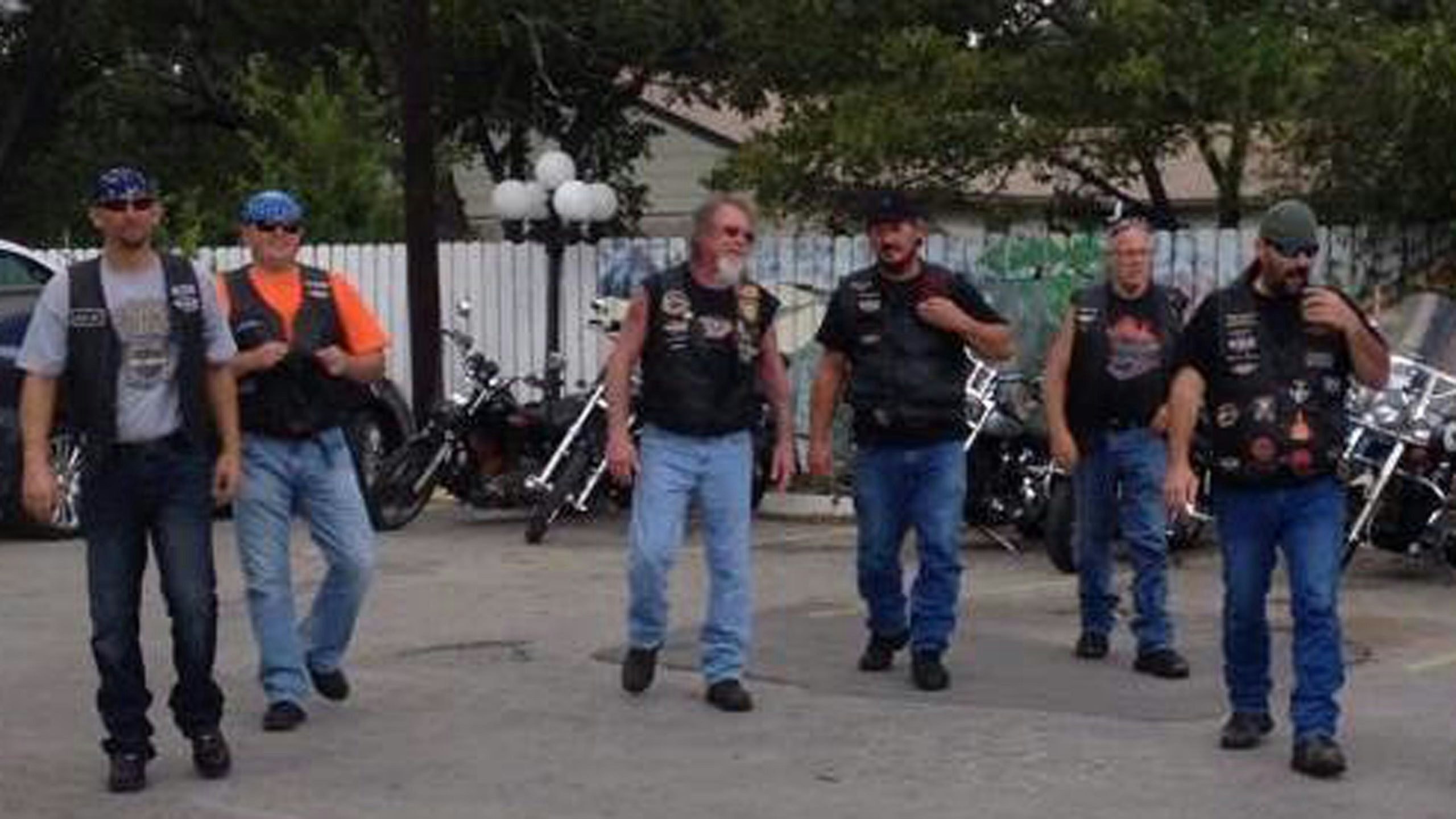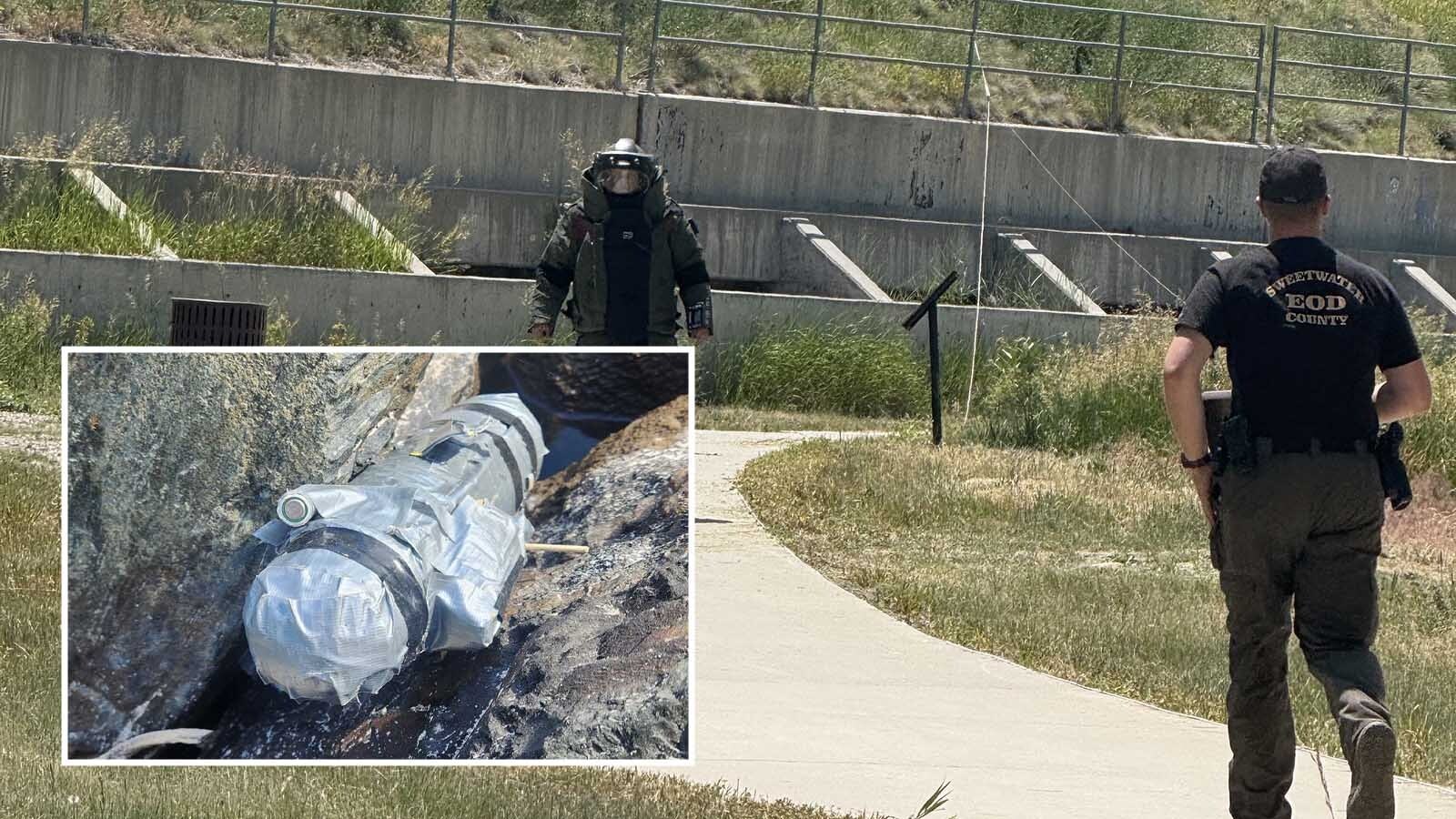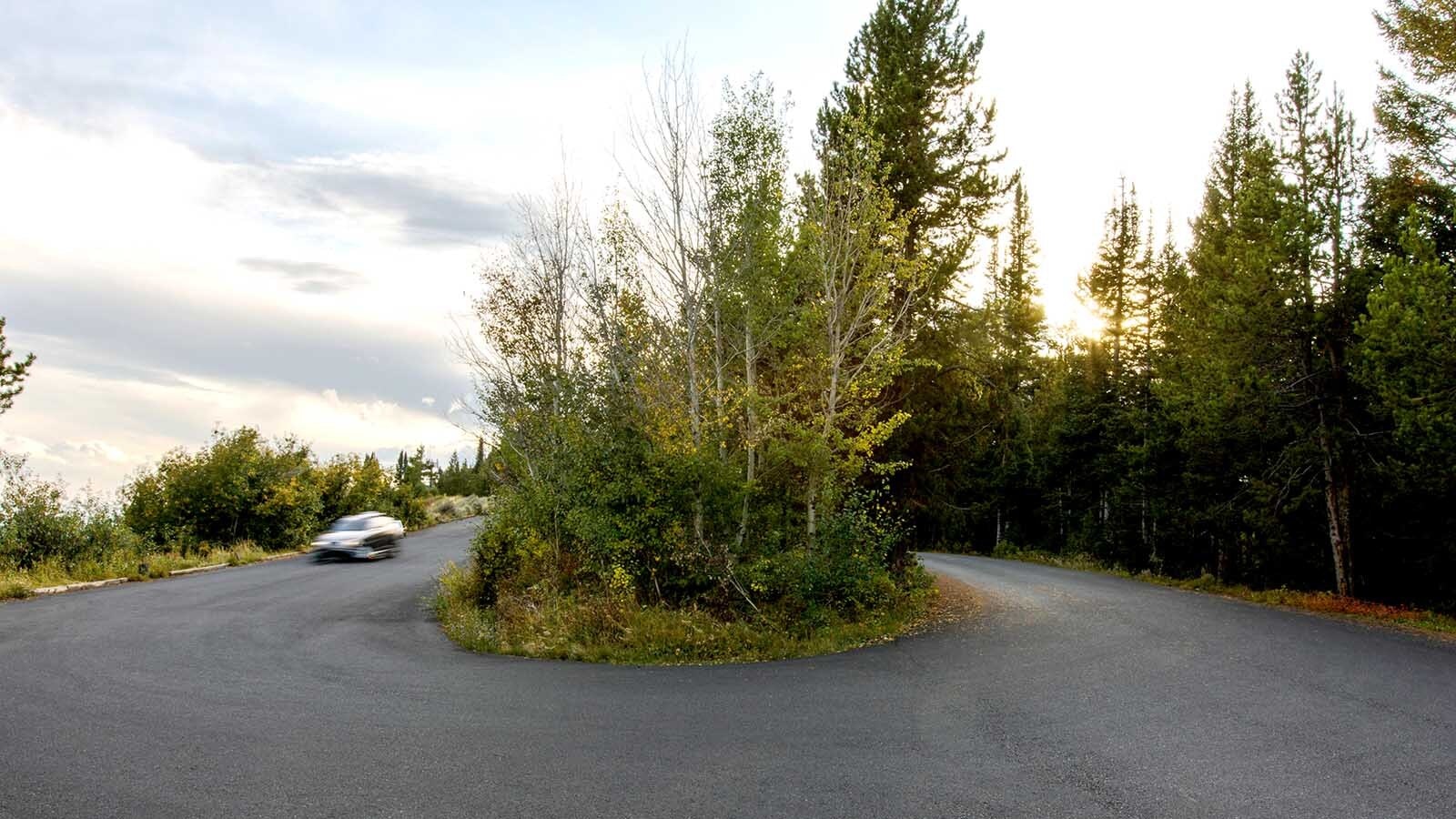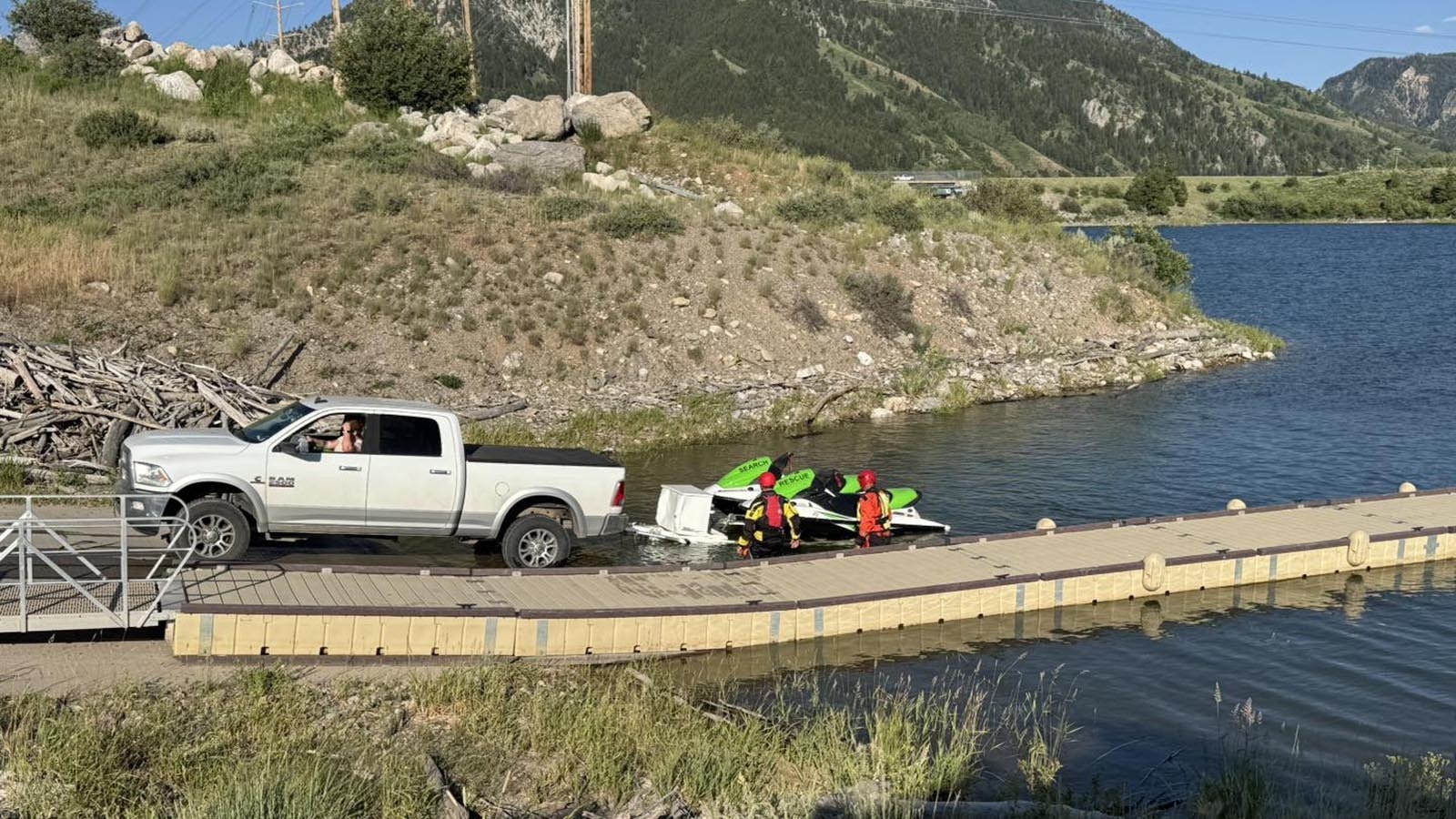
You can’t do what Jason Clark does and be scared.
In one case, Clark found himself walking with a handful of other members of Road Warriors For The Missing through a “trailer hood” in a run-down section of Salt Lake City.
Prior to this excursion, he had no idea that places like this even existed.
The mission was to pick out a trailer with certain “goofy” graffiti painted on its side of from among the other sorely dilapidated trailers. His group had gotten word that a missing teenage girl had been seen going into this trailer.
Once they spotted it, it was hard not to be nervous. As Clark said, despite being in a biker association, these are not tough guys. They’re dads – and in his case, granddads – who just happen to have a big heart for missing children and want to bring them home. Being nervous is one thing, but you can’t be scared and do what they do.
The first knock at the trailer door went unanswered, but eventually, a couple of guys came to the door. Clark and his group asked about the teenager, only to find they were tracking the wrong girl. The two girls looked similar enough to be mistaken for each other, but this definitely wasn’t the right girl.
Sometimes they get lucky, sometimes not.
The important thing, Clark said, is to keep trying and never give up.
“A Really Stupid Thing”
Jason Clark was at his job as a sales manager at a Utah car dealership one day when he stumbled across a website for a biker group that caught his eye. The group, Bikers Urban Response Needed or “BURN” for Missing Children, was asking for volunteers to help the group locate missing children.
“What the heck,” he thought, and signed up. As a father, the idea of helping track down missing children resonated with him.
It was months before he got the first call, asking him to pass out flyers seeking information about a teenage girl who was missing in the Rose Park neighborhood of Salt Lake City. Clark jumped on his motorcycle with his daughter and the two hung flyers throughout the area.
Later, he received a call from the group, letting him know that the flyers had netted some fairly solid intelligence that suggested the girl had been seen in a nearby park.
“Then, I did a really stupid thing,” Clark told Cowboy State Daily Tuesday from his home in Utah. “I said ‘If there’s anything more I can do to help for them just to give me a call.’”
The group did.
This time they wanted Clark to canvass the identified park, which was reputed to be a popular hangout for drug users and the homeless. He was told that tips suggested the girl was being trafficked in the park, which police deemed too dangerous to patrol at night.
Clark was also provided with photographs of the people who were suspected of trafficking the teen.
“These people didn’t look too friendly,” he said, “so I decided to take a friend with me.”
That first foray into that park forever changed his life. He was 40 at the time, and he couldn’t imagine being out there at his age, let alone as a young teen.
“I couldn’t shake the feeling,” he said.
He described walking through a wooded area along a wide canal and through a homeless camp, where he and his friend asked the drug addicts and homeless people if they’d seen the girl. Right over the fence from the park was one of the biggest gang areas in Salt Lake City, Clark said.
“It’s a big open spot in a horrible part of town,” he said.
After a night spent wandering the park and finding no sign of the girl, Clark left feeling dejected.
From that point forward, he was more determined than ever to keep searching for missing teens and children.
Boots On The Ground
“It was the thought that there was a child in that environment, and I wanted to get them out,” he said. “How could I not doing something after seeing what I had? It wasn’t a choice.”
After a few years of volunteering with BURN, he started his own group, Road Warriors for the Missing, in 2013. Today, Clark estimates there are about 100 volunteers in his group, including several in Wyoming. The volunteers range from bikers like him who actively search for missing people to college kids, stay-at-home moms and grandmas working at their computers to send flyers to area businesses.
Since 2013, Clark has teamed up with another national nonprofit organization, We Help The Missing (WHTM), which was also founded in Utah, but also has private investigators working in Wyoming.
The two groups frequently work together.
“They provide the intelligence, and we’re the boots on the ground,” he said.
A lot of the time, the Road Warriors’ work consists of delivering flyers. In the case of Gabby Petito, whose body as found in Bridger-Teton National Forest in September after she disappeared in August while traveling with her boyfriend, Clark and his group make the trek from the park in Utah where Petito was last seen up to Teton County.
Other times, when group members get a tip, they’ll go investigate themselves to see what they can find out.
Missing Woman in Afton
In one case, Clark decided to look into the case of Joann Hakes, who disappeared in 2015 after last being seen at Afton’s Silver Stream Lodge.
The case was cold when Clark made the trip to Wyoming two years later to visit that bar to see what he could find out.
He sat at the bar with a beer asking everyone questions about Hakes and the last sighting of her as she left the bar with two men.
Not long after, Hakes’ boyfriend Ronald Todd Weerheim was arrested and in 2021 was convicted for her murder in state district court in Kemmerer and sentenced to 25 to 40 years in prison.
Clark’s not sure what role, if any, his visit played, but he believes his questions prompted witnesses to reach out to local detectives investigating the case.
Clark made it clear his group does not conduct any investigations, but instead serves as an intermediary between witnesses and the police.
“Through years of doing this, we have found that sometimes people are more willing to talk to ‘biker trash’ than to the police or investigators directly,” he said. “So, we act as an intermediary link between them, trying to gather the information needed to get the missing back with their loved ones where they belong.”
Another big role the group’s members play is passing out flyers as the “fast response boots on the ground” to get as many eyes as they can looking for the missing person.
“We relay any info that we receive back to the team of investigators or the local police and try and get the families reunited as fast as possible,” he said.
Lots of Saves
Part of what keeps Clark and his fellow volunteers going is the number of missing people they have personally been able to save.
The volunteers all have full-time jobs and go on searches anywhere up to five times a month. The size of the search party varies anywhere from a skeleton crew of six to seven guys to upwards of 20.
The larger groups are obviously preferred, Clark said, particularly when going to some of sketchier areas where the volunteers have absolutely no idea what they might find.
The saves are numerous.
“We’ve made a lot of difference,” he said, “and we’ve got a lot of kids out of bad situations.”
In one instance, Clark and his crew were able to rescue a girl who had been kidnapped and taken to a remote cabin by the mother’s boyfriend for what was later described as one of the most horrific cases of sexual assault and abuse in Utah history.
On another occasion, the group was able to track down a child who was being used by smugglers to run drugs in his backpack. Clark and his team found the boy and brought him home on his mother’s birthday.
In a case in Las Vegas, Clark and his crew were looking for a young woman who was being held against her will by a man living in a gated community.
When the Road Warriors were unable to get through the front gates, Clark called a local friend who was able to get to the man’s front door to pay him a visit. Within a few hours, the police investigator called Clark to say that the man had called authorities to surrender the girl.
In instances such as these, Clark finds that evil typically collapses in the midst of good.
“Most of the time, if you approach people and you are confident and don’t waver, they will collapse,” he said. “All of a sudden, the people realize that these guys aren’t going to go away and they falter. Why fight it?”
When the Road Warriors find children or missing adults, they turn them over to authorities and try not to think of what happens next.
A friend of Clarks gave him this advice when she saw him obsessing over the health of a child and the difficult recovery ahead. His friend told him to stop worrying about it and stick to his part.
His job was getting them home.
“New Age Kidnappings”
Increasingly, Clark is seeing more and more cases of what he calls “new age kidnappings” where teens are being abducted by predators they meet on the internet. As someone not well acquainted with technology, he struggles to imagine the dangers that people invite into their home as they engage with strangers they meet online playing video games or on social media.
“When I was growing up, our world was just a few blocks in our small neighborhood,” he said. “We knew who people were and what was going on. Add the internet and you invited the whole world into our homes.”
Clark recounted a particularly difficult case in which a young girl from Bountiful, Utah, had hooked up with a man she’d met online who was actually a sex offender who had recently been released from a Utah prison. Before his release, he had scored higher than anyone in history on a test indicating the likelihood he would re-offend.
One of the Road Warrior volunteers headed to a house they had been told was the man’s home. When the volunteer knocked on the door, he let the man in to look around. He found nothing.
The volunteer called the investigator to say the girl wasn’t there and the investigator urged him to search again, this time looking everywhere a body could physically fit.
The teen was found alive, squashed in a cabinet under a sink.
“There’s no bottom to how low this goes,” Clark said. “Every time you think, that’s the worst, you run into something darker.”
When people ask Clark how he does it, he turns it around and asks them how they can’t?
“Not doing something, feels like supporting it,” he said.
It’s the terrified look in the children’s eyes that propels Clark and his volunteers to keep searching. Now that he’s seen it, it’s impossible to look away.
For more information or to sign up to volunteer, see Road Warriors For The Missing.





